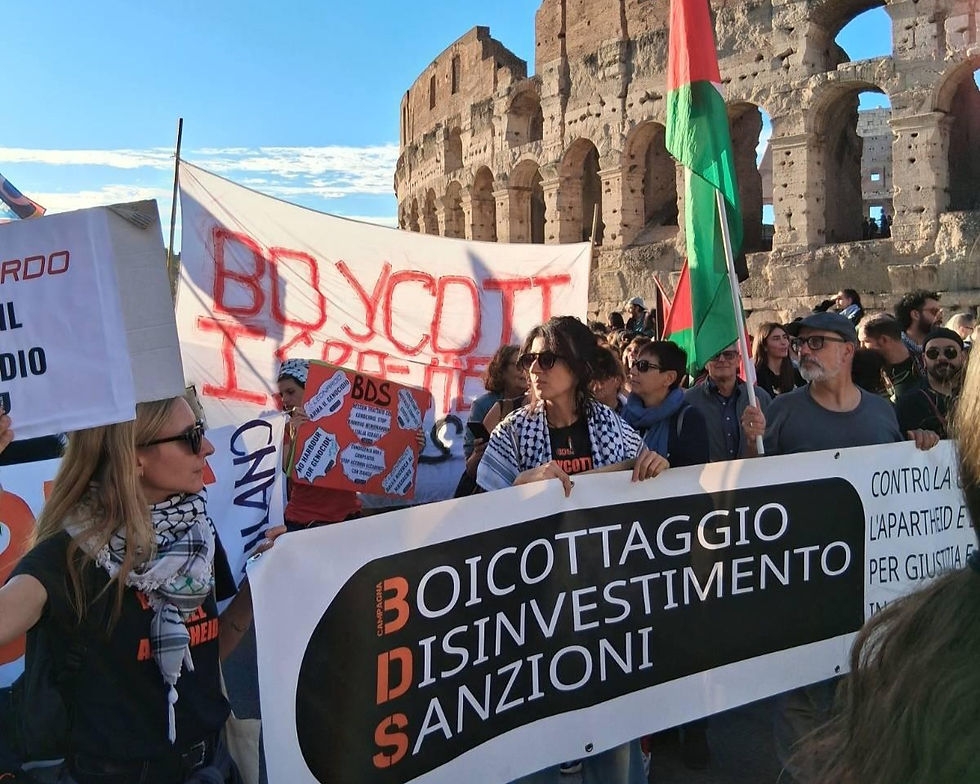Justice Over Aid: The Only Future Worth Rising For
- Matt Kletzing

- May 21, 2025
- 7 min read
We are living through the mass extinction of aid. Across continents, political spectrums, parties, parliaments, and ministries, the story of 2025 has been the collapse of Official Development Assistance (ODA). In the greatest show of impunity and cowardice, world leaders have chosen to axe over 176,000 aid jobs, cancel 10,000 aid contracts, and stop life-saving, rights-affirming work from reaching millions of people. The human cost is staggering: an estimated 369,000 additional child deaths per year due to severe malnutrition alone. That’s over 1,000 preventable deaths every single day – in just one of the 11 different humanitarian sectors.
From a peak aid budget of $223.7 billion in 2023, ODA is projected to contract to at most $167.5 billion in 2025, and it isn’t just the USA’s reckless, unjust decision to cancel $60 billion of funding. The UK is complicit, reducing its aid to just 0.3% of Gross National Income, and so are Germany, France, Canada, Finland, Belgium, and the EU, who are all slashing aid budgets. Even traditionally strong supporters of development, like Sweden and Switzerland, are diverting funds from international solidarity to military and domestic spending. In the midst of the UN80 reform, which is restructuring the entire United Nations architecture, the best solutions that so-called leaders can imagine to this polycrisis are mergers and downsizes. But we aren’t just downsizing. We are backsliding.
This isn’t just a funding crisis. It’s a legitimacy crisis, a crisis of leadership, a crisis of values. As funds plummet, we face rising authoritarianism, liberal democracy in retreat. There is no accountability for states invading other states, for occupiers starving and bombing the citizens they occupy, for citizens being removed from their own country and thrown into gulags abroad. The rules-based system that once promised to bring humanity together under one roof has now caved in to a lost trust in human rights and disregard for international humanitarian law. This is enough to make one wonder whether the aid industry ever intended a more just world in the first place?
The only "aid" paradigm that makes sense from an historical justice perspective is reparations, not only for the atrocities of colonialism but also for the ongoing exploitation of labor and resources of the Majority World. Yet, when we should be talking about reparations as a minimum, we're instead facing reductions in ODA at unprecedented levels. If we were serious about ending poverty, malnutrition, war and violence, or any of the other drivers of humanitarian suffering, we wouldn’t be talking about aid. But instead of reparations, we get retreat. Instead of justice, we push charity. Instead of redistribution, we suggest resilience. We’ve replaced state-sponsored colonization with corporate-controlled exploitation, and all in the name of a capitalist utopia that will never come into being. Let’s call charity what it is: a system designed not to end suffering, but to manage it politely and perpetually. After all, our patriarchal, capitalist societies rely on inequality to survive.
We need system change, not a reset or reform. Instead of project technicians tinkering around an aid system designed for a world that doesn’t exist anymore, we need system architects embedded everywhere to create the conditions for far more justice-based alternatives to emerge. We need to rapidly upskill with the tools and paradigms of systems-thinkers and movement-mobilisers, to practice defaulting every decision to whomever is most affected by that decision, to build braver accountability mechanisms where they don’t exist, to align the values we espouse to the actions that make lasting, effective, structural change.
We may be small, but luckily change doesn’t take “the many.” Change is inevitable when non-violent resistance movements activate just 3.5% of the population for their cause. What is our cause? Grassroots, bottom-up, solidarity-infused systemic change of the humanitarian and development systems. A new system as decentralized as it is diverse. An aid paradigm that is defined by the DNA of justice.
That’s why we’ve launched an unprecedented 100 funded spaces for this year’s Justice Based Approach Foundation Course. Alongside the 2,500 people from over 500 organisations in over 100 countries who have already been trained in these practices, we are calling for a revolution. And we know one thing: the backslide will backfire. In response to aid cuts, a realigned system will emerge that is based upon principles of justice, solidarity, and collective care. In response to the lost jobs, thousands of passionate activists have been freed from institutional shackles to create change in their own communities. In response to all those forces trying to reorganize the aid industry along the very same power dynamics that brought us into this mess, grassroots movements are growing throughout the Majority World with a different organizing logic – that of mutual aid, self-determination, and decolonial localization.
People are not just calling for more aid – they are calling for more Justice. We can create greater and deeper change by removing extractive systems of exploitation instead of simply designing projects to adapt to the harm they cause. USD $4 trillion: that's how much of the development gap we could fill with an equitable overhaul of our financial systems. Think about that in the context of the billions we are losing now. It’s 24 times our current aid budget!
Simply by redirecting the resources we do have, we could generate value worth (see note below):
$47 billion by investing in cash programming, direct funding to local and national actors, and training remaining staff as system architects of social justice instead of project implementers
$500 billion by cancelling Majority World debt interest payments and asking foundations to double their payout rates
$3,600 billion by eliminating unjust tax and trade exploitation by the Minority World
That’s over $4 trillion, the exact size of the global development financing gap in 2022–2023. Many will agree that now is the time for a more concerted effort to reshape the humanitarian system around more justice-based alternatives. But many are less aware that these shifts would actually blow the dwindling ODA budget out of the water.

Our economic systems are failing. Or rather, they are succeeding at their design: to hoard wealth and retain the status quo. Small incremental change will not adequately respond to the urgency and scale of the global challenges we face. Instead of tweaking our policies, can we imagine a less extractive norm? What if resources enriched the people at closest proximity to them? What if our answer for poverty wasn't debt and our solution for insolvency wasn't restructure? Perhaps the answer is not financing for development, but financing for Justice.
The numbers are not the problem: the system is. Aid is not failing because it lacks money. It’s failing because it was never designed to shift power.
Cash: Giving cash instead of “stuff” is 25-30% more efficient and doubles in value to a local community when it circulates while restoring dignity and agency, yet the growth of cash-based interventions has flatlined.
Philanthropy: Foundations sit on $1.5 trillion in assets, which is more than enough to solve extreme poverty, eradicate malaria, and provide universal access to education, water, and sanitation, and yet payout rates stay focused on preserving endowments, compounding financial returns over compounding social impact.
Tax: Corporations avoid taxes in the Majority World every year to such an extent that lost taxes could triple health spending in 30 countries and fund universal education in fragile states, but we are repeatedly told that tax justice is not a humanitarian issue.
Debt: Majority World countries spend $1.4 trillion annually on debt service ($406 billion on interest alone), often to the very governments and institutions that claim to “support development,” removing vital public revenue for education, healthcare, and social protection for their own citizens.
Trade: The richest 1% in the Minority World extract $30 million an hour from the Majority World, taking resources that countries could spend on their own relief and development, while we applaud these very perpetrators for the corporate donations that don’t even cover a fraction of the resources exploited.
This is just the tip of the iceberg: “who owes who”? Our internationally sanctioned system of capital flight means that for every dollar of development aid that the Minority World spends, $24 returns. It’s a system of extraction. The collapse of aid isn’t the crisis: it’s the cover. If the aid sector wants to survive, we need to stop asking how to restore what’s being lost and start removing what should never have existed in the first place.
The future of aid is Justice. Shifting to a lens of Justice means delivering agency to Majority World countries to direct their own relief and development with resources that they should own anyway. It means joining call after call after call to put power in the hands of the individuals and communities affected by crises. It means a system that doesn’t just clean up the mess caused by others but stops it at its source. It’s hyper-local, where international NGOs fight just as hard to end greed in their home countries as they do to end poverty in other people’s lands. The activist term for that is solidarity. What comes next must not be a better version of what we had. It must be something else entirely, a system built not to deliver services to the poor, but to dismantle the power structures that make people poor.
What legacy do we want to leave? This is a watershed moment, when we wake from our slumbering and rise together like a phoenix from the ashes to create a sector that leads the charge against some of the biggest challenges of our time instead of squabbling over the remaining scraps from the master's table.
The Justice Based Approach was made for this moment. It doesn’t pretend to offer a quick fix. It demands a paradigm shift. It imagines a future where grassroots movements replace international NGOs. Where humanitarianism looks more like activism. Where we stop throwing crumbs to the oppressed and start returning what was stolen. Let this be the end of aid, and let it be the beginning of Justice.
Note: For calculation of these sums, email the author at mattkletzing@unitededge.net
Join us on this year’s Justice Based Approach Foundation Course by registering right now at already subsidized rates or applying here for one of 100 funded places by 30 June.
Matt Kletzing is one of the co-founders and co-directors of United Edge and one of the original architects of the Justice Based Approach and one of the lead facilitators of the groundbreaking JBA Foundation Course.












Comments